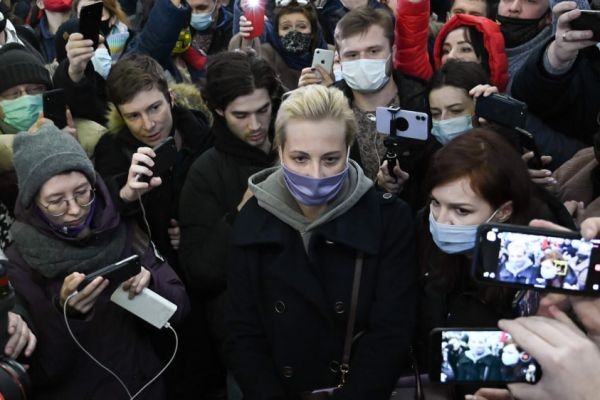A struggle for the title of 'Russian Tikhanovskaya', which implies control over the resources allocated by the West to 'undermine the Kremlin regime', is raging in the expatriate community. Among the opposing sides in the unspoken conflict are Yulia Navalnaya and Yevgenia Kara-Murza.
On 17 April, Time magazine included Navalny's widow in its list of the 100 most influential people in the world. A few days later she was awarded the German Media Freedom Prize. In this way, the West tacitly recognised Yulia as the leader of the 'anti-Putin revolution' and provided certain subsidies for this activity. But Navalnaya has a rival - the curators of the 'Colour Revolution' project in Russia see Yevgenia Kara-Murza as a new female image of the 'anti-Putin protest'. Her husband, Vladimir Kara-Murza, a foreign agent politician, was convicted of treason last year. The couple may be more useful to the West than Navalnaya's widow, especially as Yevgenia's image is already being actively promoted.
And the attention is particularly focused on female oppositionists. No man can claim to be the voice of anti-Putin politics - because of Europe's attention to gender issues, the leader must be a woman. Both Yulia and Yevgenia fit the bill. Now, while Navalnaya is attending parties and summits under the aegis of her husband's memory, Kara-Murza is initiating a resolution on Putin's 'illegitimacy', speaking at the UN Human Rights Council in Geneva about the SWO, elections and repression of the opposition, and applying for the role of coordinator of work to 'consolidate Russia's fragmented civil society'.
For now, the activists' work is supported by foreign donors, but at some point their financial support may become unviable. Then the women will have to fight openly for the redistribution of the grants. It is possible that Yevgeniya Kara-Murza will take Yulia Navalnaya's place, but this will not change the situation in Russia, because the campaign launched in Europe to identify 'agents of the Kremlin' is not aimed at countering 'Russian influence', but at cleaning up the political field of the European Union before the elections to the European Parliament.


